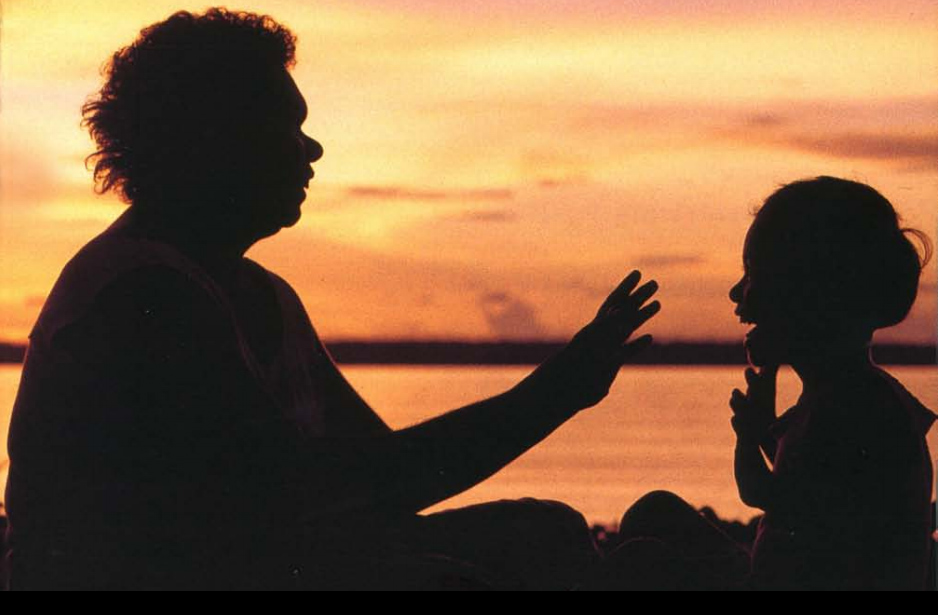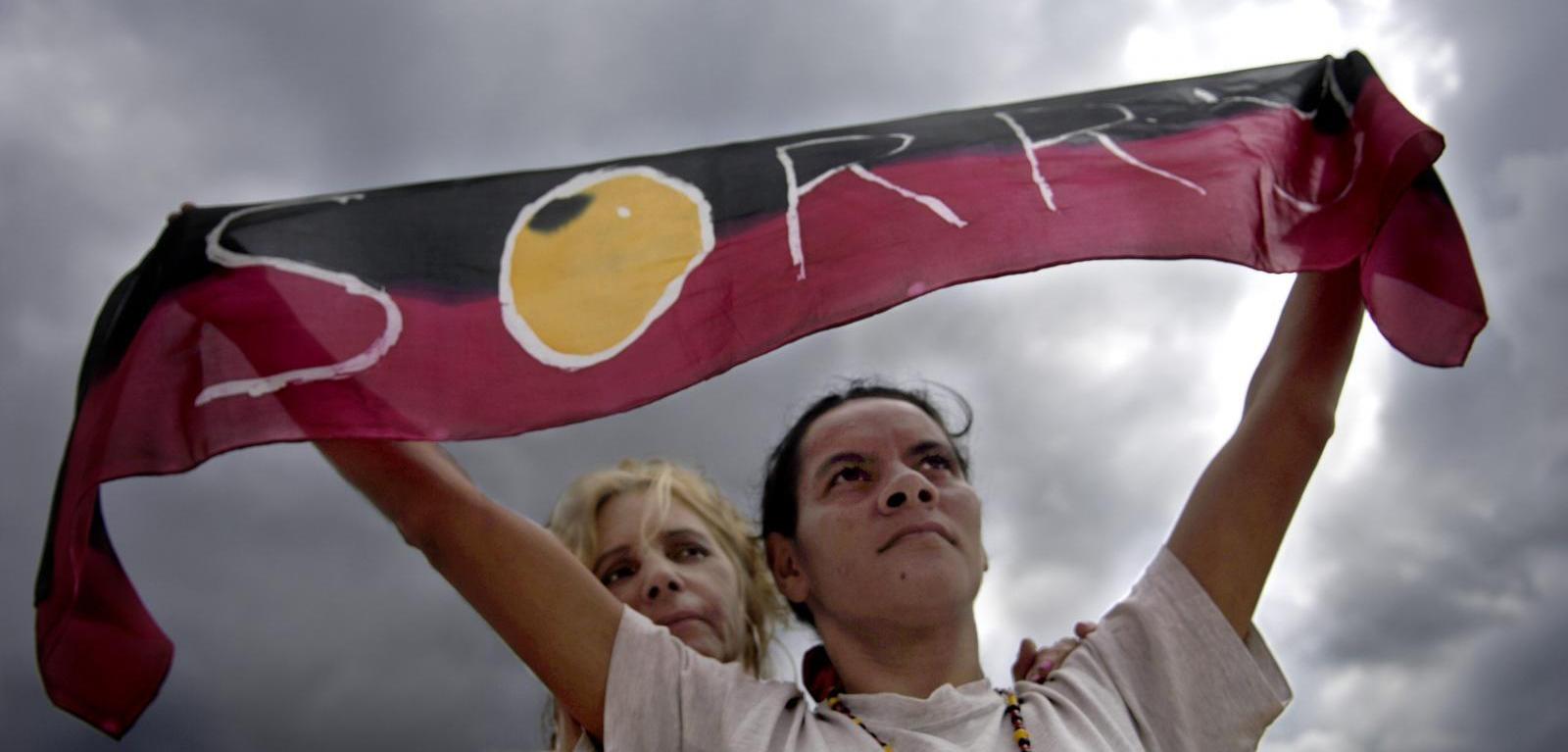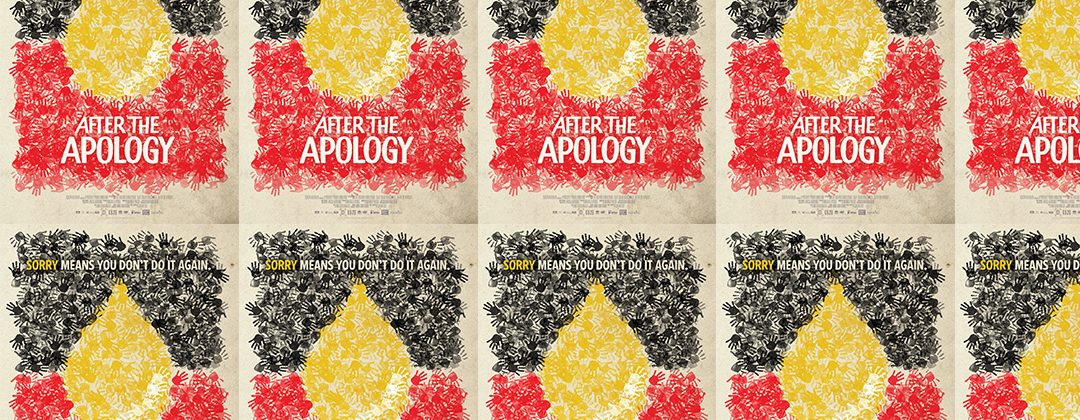Today we honour the Indigenous peoples of this land, the oldest continuing cultures in human history. We reflect on their past mistreatment. We reflect in particular on the mistreatment of those who were Stolen Generations—this blemished chapter in our nation’s history – Former Prime Minister, Kevin Rudd
The Stolen Generations
The ‘Stolen Generations’ refers to Aboriginal or Torres Strait Islander people who were separated from their family, Community, culture and country. ‘Separated’ can mean they were forcibly removed or taken under government laws that sought to 'assimilate' Aboriginal people or raise them to be the same as white people and deny our culture. Many children were removed to institutions such as children’s homes or orphanages or were fostered to non-Aboriginal families. They were frequently prevented from contacting their families or staying connected with Community and culture.
National Inquiry into the Separation of Aboriginal Children from Their Families
In 1995 the Federal Attorney-General launched the National Inquiry into the Separation of Aboriginal and Torres Strait Islander Children from Their Families. This Inquiry was conducted by the Human Rights and Equal Opportunity Commission (HREOC). This was the first official inquiry into the Stolen Generations. It aimed to: “Trace and report on past laws, practises and policies that resulted in the separation of Aboriginal and Torres Strait Islander children from their families and the effects of those laws, practises and policies.”
Over two years, the National Inquiry took oral and written testimony from over five hundred Aboriginal and Torres Strait Islander people across Australia. They also took testimonies from Indigenous organisations, foster parents, State and Territory Government representatives, church representatives, other non-government agencies, former mission and government employees and individual members of the community.
For many of the Aboriginal and Torres Strait Islander people who gave evidence to the Inquiry, it was the first time they had been able to share their story and their pain in an official investigation.
In April 1997, the Commission handed down the report – Bringing them Home: Report of the National Inquiry into the Separation of Aboriginal and Torres Strait Islander Children from Their Families.
A documentary produced in 1997 by the Australian Human Rights Commission is an education resource about the Stolen Generations aimed at school children.
Bringing Them Home Report
The report contained 54 recommendations about how to address and heal the effects of the forced removals and the laws and policies of previous governments on Aboriginal and Torres Strait Islander peoples. The report was also the first time that the Stolen Generations had been acknowledged officially by a national inquiry.
One of the recommendations of the report was for all Australian parliaments and state and territory police forces to acknowledge their roles in the creation and enforcement of past laws, practises and policies and to officially apologise to the Aboriginal and Torres Strait Islander communities on behalf of their predecessors.
Some of the other recommendations of the report were:
- That reparations be made to members of the Stolen Generations including rehabilitation and monetary compensation (payment)
- That non-government agencies such as churches acknowledge their roles and make formal apologies
- That the history of the Stolen Generations and the continuing effects on survivors and the Community be taught in primary and secondary schools
- That professionals working with the Aboriginal Community receive training about the history and effects of forcible removal
- That governments establish support services for Aboriginal people seeking to find their families.
Watch the former Prime Minister Kevin Rudd deliver the apology to the Stolen Generations on behalf of the Australian Parliament.
Image Source: This Is Why Australia Has 'National Sorry Day', Time
The National Apology
The Prime Minister at the time of the release of the Bringing them Home report, John Howard, had consistently refused to make an apology to the Stolen Generations. Following his election win in 2007, Prime Minister Kevin Rudd committed to making the apology in his first year in office. This occurred in the Australian Parliament in Canberra on 13 February 2008.
Many Stolen Generations members gathered at Parliament House to hear the apology. For the first time, a Welcome to Country ceremony was held at the opening of Parliament.
Aunty Matilda House, a Ngambri Elder, welcomed visitors to her Country and dancers from around Australia and the Torres Strait Islands took part in the ceremony. A message stick was presented to the Prime Minister by Aunty Matilda’s grandchildren as a tangible symbol of the ceremony. Message sticks were a "means of communication used by our peoples for thousands of years. They tell the story of our coming together" said Aunty Matilda.
The Apology was a significant event across Australia. Big screens were set up in parks and communal areas as everyone watched Kevin Rudd speak of the wrongs governments had inflicted on Aboriginal and Torres Strait Islander peoples across Australia. A huge wave of tears, relief and applause flowed at the end of his speech.
Following the Apology, Aunty Lorraine Peeters, a member of the Stolen Generations, presented the Prime Minister and the Leader of the Opposition with a glass Coolamon, made by Bai Bai Napangardi, a Balgo artist. Inside the Coolamon was a message thanking the Parliament. The message stated that the Apology showed compassion and opened a path for walking together in the future. The Speaker of the House, Harry Jenkins, accepted the Coolamon.
Click here to read the full apology by Prime Minister Kevin Rudd.
The rate of Aboriginal child removal has increased since the apology to the Stolen Generations in 2008. This documentary shares the stories of people affected by these ongoing removals and those fighting to stop it and keep Aboriginal children in Aboriginal care.
After the Apology
It’s not what he said…it’s what he didn’t do. He hasn’t done a thing. No good saying sorry if you don’t do anything about it - Uncle Cecil Bowden.
2017 marked 20 years since the Bringing Them Home Report was released and to commemorate the anniversary the Healing Foundation released Bringing Them Home 20 years on: An action plan for healing. The report showed that despite two decades passing, the majority of recommendations in the report had not yet been implemented and the effects were still being felt.
This new report found that the trauma and distress felt by members of the Stolen Generation have also affected their children, grand-children and great-grandchildren. This is commonly described as intergenerational trauma – where the trauma is passed down from generation to generation.
Victoria in particular, lags behind the other states when it comes to redress, as it is the only state without a redress scheme for Stolen Generations members.
While the apology was a significant moment in our history there is still a lot of work to be done to heal the pain caused by the forced removals of the Stolen Generations.
Behind the News (BTN) - 10th Anniversary since the Apology to the Stolen Generations
Link Up Victoria
Link-Up provides support for Stolen Generations members to find their family and for family to find members who were stolen. Link-Up also helps anyone who wasadopted, fostered, placed in an institution under other government legislation.
Link-Up Victoria assists the Stolen Generations to confidently reclaim their Aboriginal identity, to wholeheartedly embrace their Aboriginal heritage, to happily return back into the caring arms of their people and to proudly walk on their Country. Their work is about breaking the cycle of assimilation that began a long time ago when the governments of this country decided that it was best for Aboriginal babies and children who came under their care to not know who they were, where they came from and who they belonged to.
You need to be 18 years of age and over and resident in Victoria or Tasmania to be eligible for Link-Up’s services. Their support service is confidential, sensitive and culturally responsive.
To find out more about Link-Up Victoria click here. If you live elsewhere in Australia click here to find your nearest Link Up or Stolen Generations service.
Stolen Generations’ Testimonies
The ‘Stolen Generations’ Testimonies’ project is an initiative to record on film the personal testimonies of Australia’s Stolen Generations Survivors and share them online. In 2009 more than thirty Stolen Generations’ Survivors shared their stories, their memories and themselves in the first round of interviews for the ‘Stolen Generations’ Testimonies Foundation.’
Each testimony is recorded with transcripts available to download. To view these stories, click here. It is important that we listen to these stories and work to heal from this sad past.
Resources
- Rabbit-Proof Fence (2002)
A film that tells the story of three Aboriginal girls who escape after being taken from their homes to be trained as domestic servants and set off on a journey across the outback.
- Servant or Slave (2016 TV Movie)
Bringing to light the heartbreaking experiences of Rita Wright, Rita Wenberg, Violet West, Adelaide Wenberg and Valerie Linow, Servant or Slave is a film about the pursue of justice of Stolen Generations members.
- Kanyini (2006)
This documentary is based on the life and philosophy of Bob Randall, an Elder of the Yankunytjatjara people of Uluru in Central Australia. - First Australians: Stolen Generations SBS
This episode of the famous documentary series directed by Rachel Perkins shows the sad story of the Stolen Generations from an Aboriginal perspective. - After the Apology (2017)
The rate of Aboriginal child removal has increased since the apology to the Stolen Generations in 2008. This documentary shares the stories of people affected by these ongoing removals and those fighting to stop it and keep Aboriginal children in Aboriginal care. - Stolen Generations Resource Kit for Teachers and Students by the Healing Foundation.
Sources used in writing this article:
- Bringing them home report, Human Rights and Equal Opportunity Commission
- Bringing Them Home 20 years on: an action plan for healing, Healing Foundation
- The Healing Foundation
- Stolen Generations Testimonies
- The 2008 Apology transcript.




